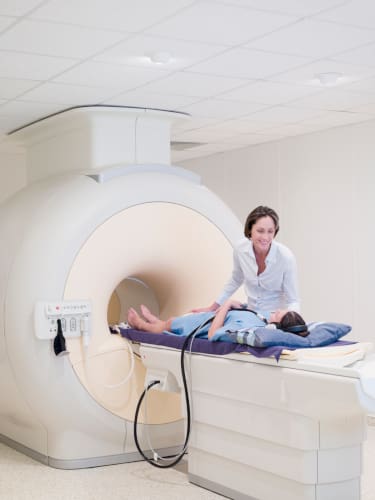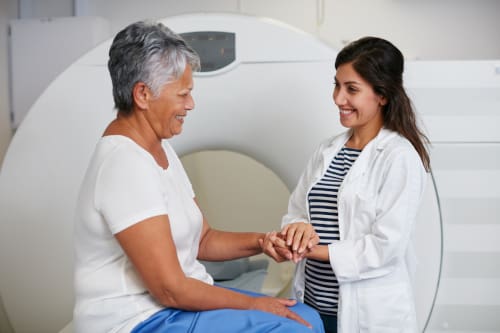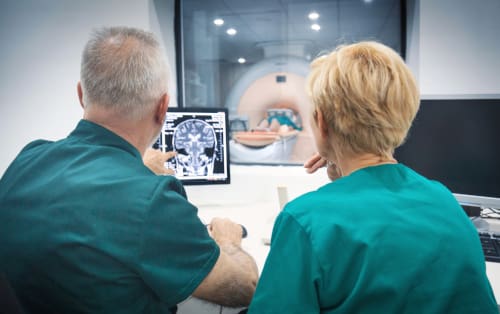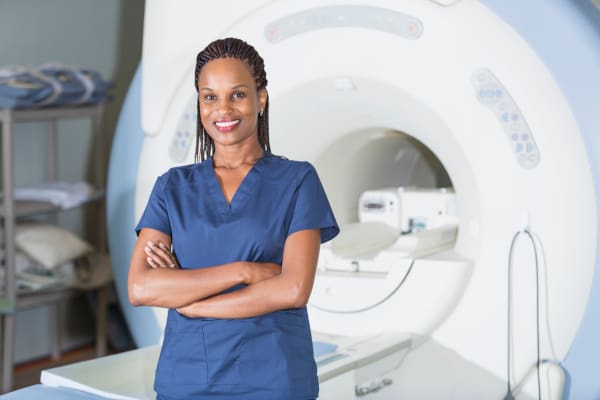What Makes a Good MRI Technician
The Essential Skills and Qualities
Diagnostic imaging is important in health care, helping diagnose and treat different medical conditions. Among the skilled professionals in this field, MRI technicians, also known as MRI technologists, hold a significant position. These professionals specialize in operating magnetic resonance imaging (MRI) machines to create detailed images of the human body.
In this blog post, we will discuss the important skills and qualities needed to be a good MRI technician. These include interpersonal skills, technical expertise, attention to detail, patient care, and the necessary education for this career. Additionally, we will provide insights into the day in the life of an MRI technologist.
Makings of a Great MRI Technician
A great MRI technologist embodies a combination of essential qualities and skills that go beyond the technical aspects of the job. They possess strong interpersonal skills, allowing them to establish a rapport with patients and provide empathetic care.
Their ability to communicate effectively and address patient concerns creates a calm and reassuring environment during the scanning process. Moreover, great MRI technologists exhibit exceptional attention to detail, carefully analyzing images to identify abnormalities and ensure accurate diagnoses.
Interpersonal Skills
While technical competence is vital for MRI technicians, the ability to communicate effectively and demonstrate empathy towards patients is equally important. MRI technicians interact directly with patients, making it crucial to establish a rapport and alleviate any anxieties they may have.
Excellent interpersonal skills allow technicians to gather vital patient information, address concerns, and ensure a smooth scanning experience. Moreover, empathetic communication helps technicians understand and accommodate patients with varying physical and emotional needs.
MRI technologists with strong interpersonal skills contribute to a positive patient experience and overall satisfaction with the healthcare service.

Technical Skills
Proficiency in the technical aspects of MRI technology is a fundamental requirement for MRI technicians. These professionals must possess a deep understanding of how MRI machines operate, including the various imaging sequences, protocols, and parameters. They should be able to adjust scan settings based on specific patient requirements and ensure accurate image acquisition.
A strong foundation in anatomy and physiology enables technicians to identify abnormalities in the images produced, aiding in accurate diagnoses. Continuous learning and staying updated with advancements in MRI technology are crucial to maintaining technical competence. Technologists who excel in technical skills contribute to the accuracy and reliability of diagnostic imaging results.
Attention to Detail
MRI scans are highly detailed and intricate, requiring MRI technicians to exhibit a keen eye for detail. The ability to analyze images carefully is vital for:
- Detecting abnormalities
- Ensuring accurate diagnoses
- Relaying important information to radiologists and physicians
MRI technicians must recognize, and fix image problems caused by patient movement, equipment issues, or other factors. Attention to detail minimizes the likelihood of errors and contributes to the overall quality of diagnostic imaging. Technologists with a meticulous approach enhance the reliability and diagnostic value of MRI scans.
Patient Care
Providing exceptional patient care is a fundamental aspect of being a good MRI technician. Patients undergoing MRI scans may experience anxiety, claustrophobia, or discomfort. It is the responsibility of the technician to create a calm and reassuring environment, explaining the procedure, and addressing any concerns.

MRI techs must prioritize patient safety and comfort. They should ensure that they conduct the scanning process with minimal stress and maximum care. A good MRI Technician can do this by:
- Developing strong interpersonal connections
- Actively listening to patients
- Responding to their needs
- Contributing to a positive patient experience
MRI technologists with exceptional patient care skills contribute to patient satisfaction and adherence to future medical appointments.
Day in the Life of an MRI Technologist
The day in the life of an MRI technologist is dynamic and rewarding. Most have different tasks to do every day, but they usually have a range of responsibilities to handle regularly. These responsibilities tie directly into the skills needed to make them successful. Here a some of the activities an MRI Technologist may do on a given day.
Preparing Patients
MRI technologists review patient medical history, explain the procedure, and address any questions or concerns. They ensure that they properly position patients for scanning and provide necessary instructions for the duration of the procedure.
Operating MRI Equipment
Technologists are proficient in operating the MRI machine, ensuring optimal imaging quality. They adjust scan parameters, select appropriate imaging sequences, and monitor patients during the scan to ensure their safety and comfort.
Image Analysis and Documentation
MRI technologists analyze the acquired images, looking for abnormalities or artifacts. They collaborate with radiologists and physicians to interpret and document findings accurately.
Equipment Maintenance
Technologists perform routine maintenance tasks, ensuring the MRI machine is functioning optimally. They also troubleshoot technical issues and coordinate repairs when necessary.

Patient Care and Safety
Throughout the day, MRI technologists prioritize patient care, addressing any concerns or anxieties that may arise. They maintain a safe and sterile environment, following proper infection control protocols.
Continuous Education and Professional Development
MRI technologists stay updated with the latest advancements in MRI technology. They attend workshops, conferences, and pursue continuing education courses to enhance their knowledge and skills.
Taking on the Role of an MRI Technician
To be a good MRI technician, you need technical skills, people skills, attention to detail, and care for patients. By possessing the ability to operate MRI machines effectively, communicating well with patients, paying strong attention to details, and prioritize patient well-being, MRI technicians play a vital role in the healthcare system.
To become an MRI technician, you must complete three things: obtain an education, obtain certification, and continue learning. It is important to stay up-to-date with new imaging technology. Their dedication and proficiency contribute to accurate diagnoses, improved patient experiences, and the overall effectiveness of healthcare services.
Sources:
- American Society of Radiologic Technologists – MRI Technologist
- S. Bureau of Labor Statistics. (2021, April 9). Radiologic and MRI Technologists
- S. Department of Labor. (2021, February 10). Diagnostic Medical Sonographers and Cardiovascular Technologists and Technicians, Including Vascular Technologists

